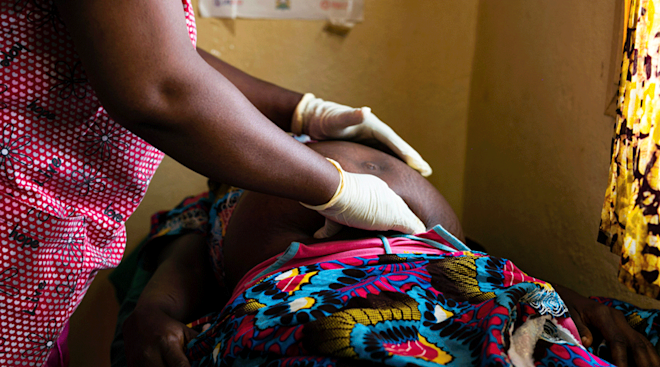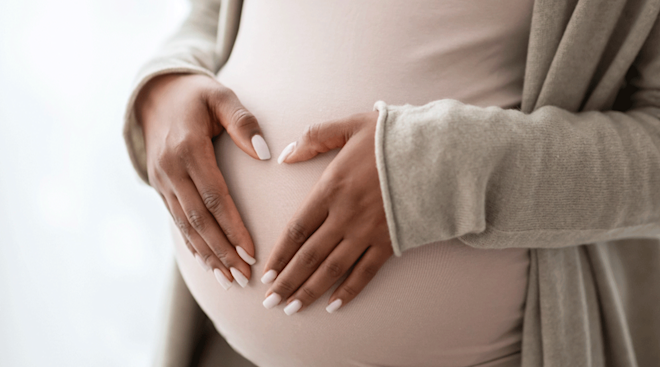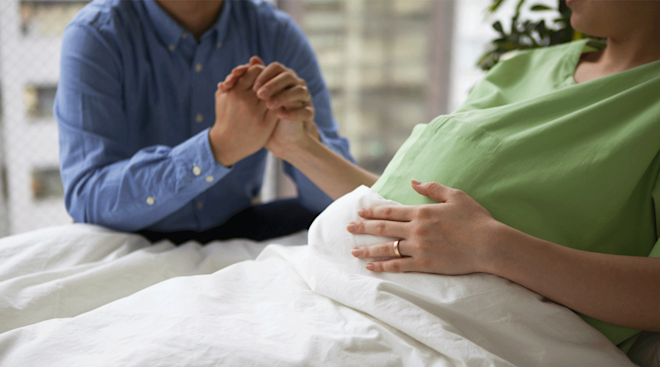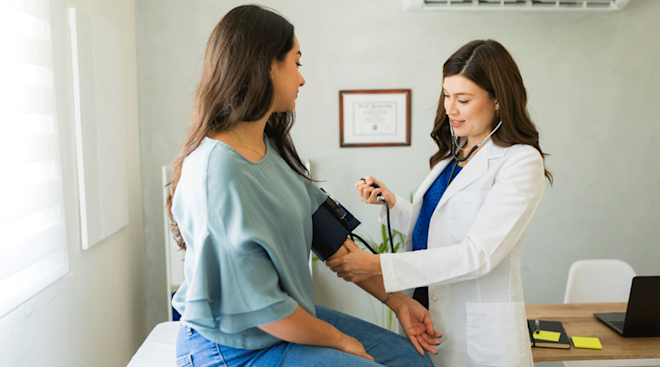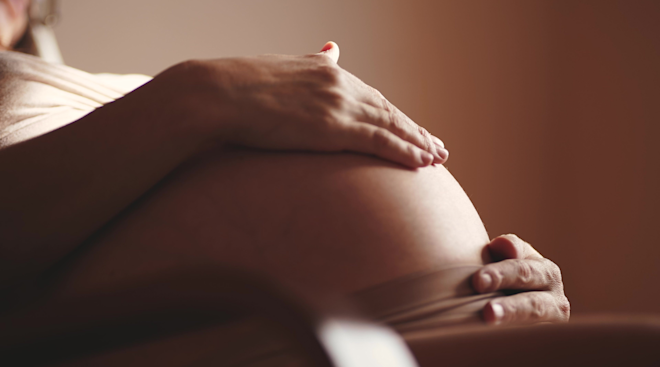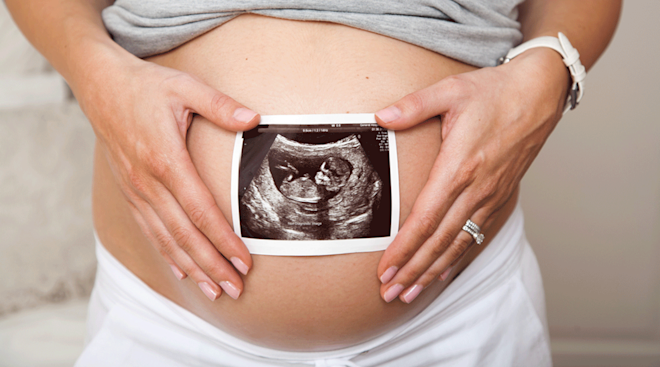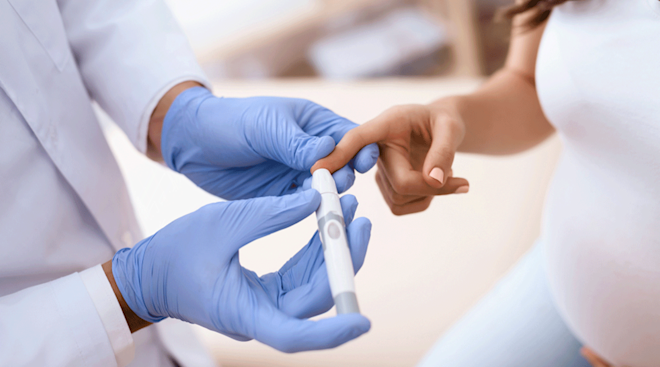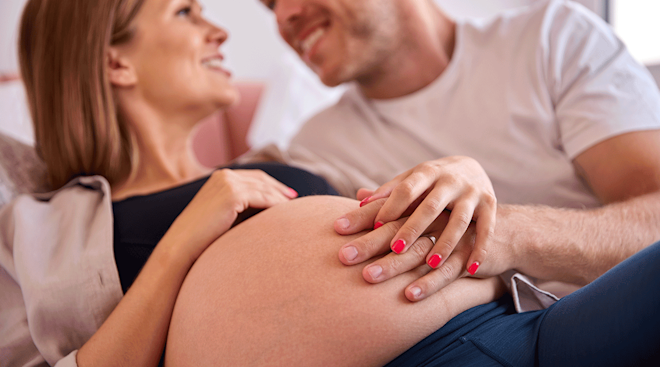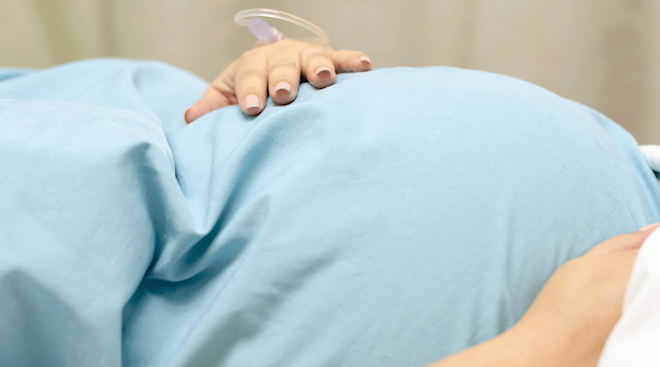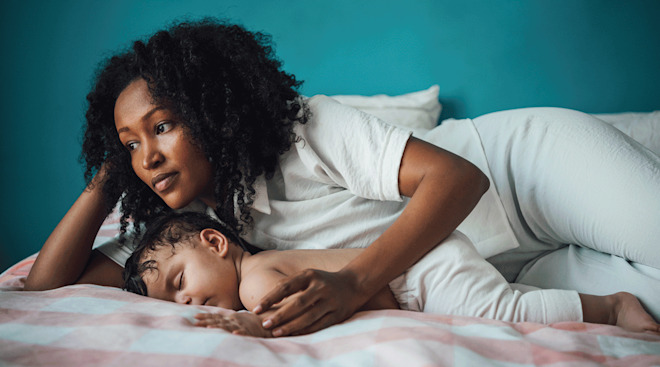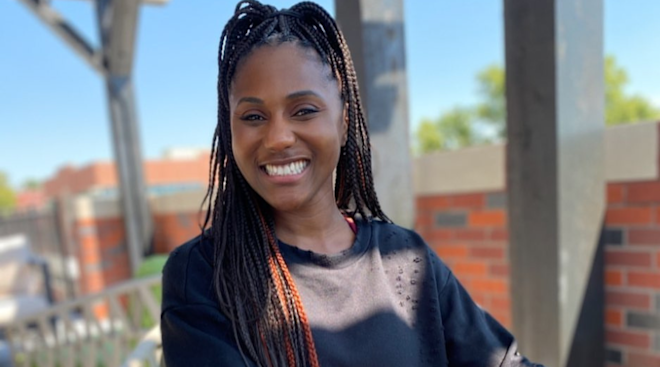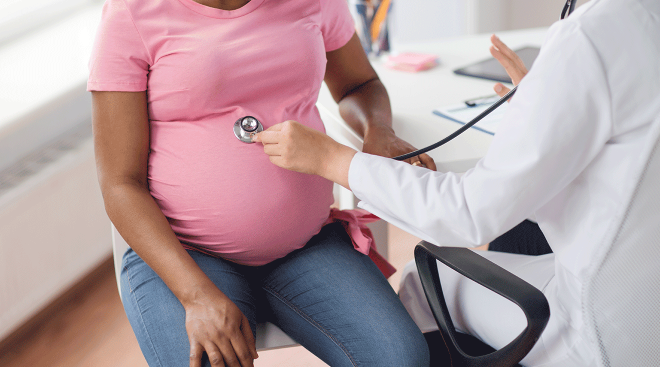Everything You Need to Know About Cholestasis of Pregnancy
Body aches. Constipation. Heartburn. Tiny fingers and heels pushing into your ribcage. Pregnancy offers so many symptoms and side effects that itchy hands and feet may seem like the least of your worries. But sudden, excessively itchy skin can signal that you might have intrahepatic cholestasis of pregnancy (ICP)—more commonly referred to as obstetric cholestasis or just cholestasis. While it’s extremely rare (the occurrence rate is between 0.3 and 0.5 percent among the general population), according to the Society of Maternal-Fetal Medicine (SMFM), cholestasis is still the most common pregnancy-specific liver condition. It requires regular fetal monitoring, and in some instances early induction may be necessary, depending on the severity and date of diagnosis. But what exactly is cholestasis of pregnancy, why does it happen and what does it mean for you and baby? Here, ob-gyns share everything you need to know about cholestasis symptoms, diagnosis and treatment.
Officially labeled as intrahepatic cholestasis of pregnancy, cholestasis is a prenatal medical condition that occurs when the liver doesn’t properly excrete bile. It usually occurs late in the second trimester or during the third trimester. The medical term is a combination of two Greek words: chole, which means “bile” and stasis, which means “still.”
A quick biology refresh: The job of the liver is to excrete bile; the gallbladder stores the bile, which is then used in the digestive system to break down fat, explains Laura Erlich, LAc, FABORM, a holistic fertility and obstetric specialist and the founder of Mother Nurture Wellness in Los Angeles, California. But with cholestasis, the liver doesn’t excrete bile efficiently, causing a backup of bile acids in your body. This can be dangerous for you and baby.
So why does cholestasis happen during pregnancy? “We think that the high estrogen and progesterone state alters the way the liver processes bile acids,” says G. Thomas Ruiz, MD, an ob-gyn and lead provider at MemorialCare Orange Coast Medical Center in Fountain Valley, California.
Estrogen levels are at record highs during pregnancy and then drop rapidly after delivery, explains Erlich, when cholestasis of pregnancy symptoms mostly resolve. This strengthens the argument that pregnancy hormone fluctuations play the biggest role in contributing to cholestasis of pregnancy.
The most common symptom of cholestasis is an intense, rashless itching. The itching usually occurs on the palms of the hands and soles of the feet, though it may include other parts of the body as well. It’s often worse at night, which can lead to insomnia and daytime irritability–unwelcome news when an incessant need to pee and physical discomfort already make it tough to get sufficient sleep.
So why the itchy hands and feet? “When bile acids back up in the liver, some of that gets into the maternal bloodstream,” explains Erlich. The excess bile acid is then absorbed by the skin tissue as a way to try to remove it from the body, leading to itchiness.
In addition to itchy skin, the Cleveland Clinic lists other possible cholestasis symptoms:
- Dark-colored urine
- Light-colored feces
- Nausea
- Fatigue
- Diminished appetite
- Upper-right quadrant stomach pain
- Jaundice (a yellowing of the skin and whites of the eyes)
Although cholestasis has an overall low occurrence rate, some research has suggested a number of factors that may contribute in part to a woman’s risk of developing the liver condition:
- Family history of biliary disease
- Hepatitis C
- Cholestasis of pregnancy during previous pregnancies
- Multiple gestation pregnancy, such as twins or triplets
- Maternal age greater of 35+
Additionally, women with Scandinavian, Indian, Pakistani or Chilean backgrounds may be at greater risk, notes Cleveland Clinic.
In addition to disrupting everyday activities and impeding your ability to get quality sleep, excessive itchiness can also lead to skin injuries caused by over-scratching. What’s more, some moms with cholestasis have trouble absorbing vitamin K, which can increase risk of excessive bleeding during labor and the postpartum period, notes Cleveland Clinic.
While itchy palms and feet may be a nuisance for pregnant moms, the consequences of cholestasis can be more severe for baby. Although overall a very rare condition, with a cholestasis diagnosis there’s an increased rate of stillbirth, says Ruiz. The Mayo Clinic notes other possible risks to baby, including preterm birth and potential lung problems from breathing in the meconium that can pass into the amniotic fluid of a mom with cholestasis.
As soon as a cholestasis diagnosis is made (see below), your doctor may implement bi-weekly fetal monitoring to check baby’s heart rate as well as other tests. You may also be induced early, if deemed necessary—typically around 37 or 38 weeks, notes Cedars Sinai.
How do you know if you have cholestasis of pregnancy? Sudden, incessant itching of the palms of your hands and soles of your feet is the most common sign of cholestasis. Your doctor can confirm a cholestasis of pregnancy diagnosis with a blood test to evaluate the total bile acids (TBA) in your blood. A measurement at or above 10 micromoles per liter confirms cholestasis, according to SMFM.
Erlich stresses that you should let your doctor know right away about any sudden itching or other suspicious symptoms, so you can get tested and create a plan for care. “If you saw your specialist on Monday and started itching intensely on Wednesday, I wouldn’t wait until two weeks later to tell your doctor. I would go and get it checked right away,” says Erlich.
If you get a definitive cholestasis of pregnancy diagnosis, what are your treatment options? It depends. If the cholestasis is mild and occurs later in your pregnancy, it’s possible that treatment may not be necessary at all. (Of course, regular fetal monitoring will still need to happen.) At-home remedies such a calamine lotion or an antihistamine may be used to combat mild itching. Some moms may find relief with a milk thistle or dandelion tea, Erlich says, both of which can help gently detoxify the liver. But you should check with your doctor before adding any new products to your routine.
If the itching is severe–as it often is–there are cholestasis treatment options for reducing symptoms. “The most effective cholestasis treatments are medicines such as ursodeoxycholic acid that bind the bile acids in the liver so they aren’t released into the skin in order to reduce itching,” Ruiz explains. Antihistamines may also be prescribed to address itching, but they won’t be very effective unless they’re paired with a treatment to address the bile acid buildup in the body. If you have cholestasis, your doctor may also suggest Vitamin K supplements before and after birth to lessen the risk of hemorrhaging, notes the American Pregnancy Association.
For severe cases of cholestasis with high levels of bile acids in Mom’s blood, induction may be helpful or necessary, since cholestasis of pregnancy resolves almost immediately or within a week of delivery. “After birth, estrogen levels in the mother go way, way down, which is why symptoms of cholestasis disappear after childbirth,” Erlich explains.
Still, there are steps you can take to support healthy liver function during pregnancy. “Take care of your liver from early on. Stay hydrated. Don’t eat super fatty foods. Eat clean. Consume enough fiber to ensure daily bowel movements,” Erlich suggests. This is sage advice, whether you’re prone to cholestasis of pregnancy or not.
Intrahepatic cholestasis of pregnancy is serious, but it’s also very rare. To that end, you shouldn’t “freak out every time you have an itch on your hand,” Erlich says. Take care to support your physical and mental health, and if sudden and intense itchiness does occur, contact your doctor to determine next steps to keep you and baby healthy.
Please note: The Bump and the materials and information it contains are not intended to, and do not constitute, medical or other health advice or diagnosis and should not be used as such. You should always consult with a qualified physician or health professional about your specific circumstances.
Plus, more from The Bump:
Laura Erlich, LAc, FABORM, is a holistic fertility and obstetric specialist and the founder of Mother Nurture Wellness in Los Angeles, California.
G. Thomas Ruiz, MD, is an ob-gyn and the lead provider at MemorialCare Orange Coast Medical Center in Fountain Valley, California. He received his medical degree from UC Irvine School of Medicine.
Society of Maternal-Fetal Medicine (SMFM), Understanding Intrahepatic Cholestasis of Pregnancy
Clinical Liver Disease, Approach To a Patient With Elevated Serum Alkaline Phosphatase, May 2012
Cleveland Clinic, Cholestasis of Pregnancy, August 2022
Mayo Clinic, Cholestasis of Pregnancy, December 2022
Cedars Sinai, Cholestasis of Pregnancy
American Pregnancy Association (APA), Cholestasis of Pregnancy
Learn how we ensure the accuracy of our content through our editorial and medical review process.
Navigate forward to interact with the calendar and select a date. Press the question mark key to get the keyboard shortcuts for changing dates.


































